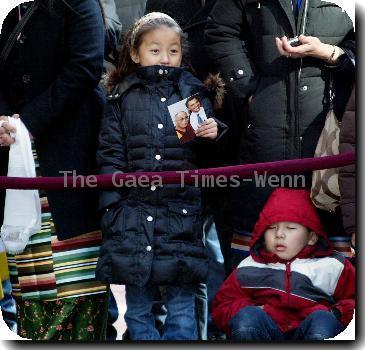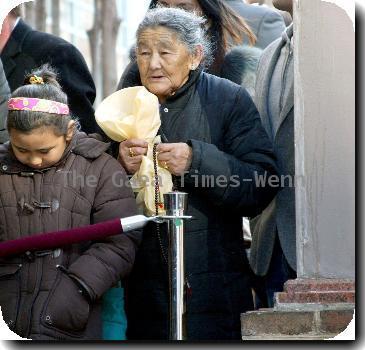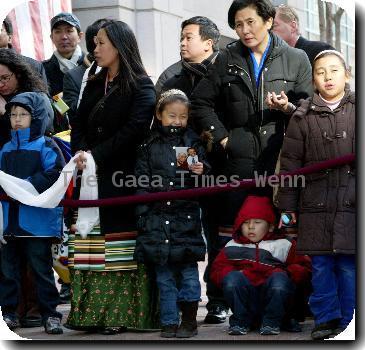AP Interview: Brazil’s president says new UN sanctions could push Iran close to war
By Alan Clendenning, APTuesday, March 9, 2010
AP Interview: Silva says Iran sanctions dangerous
BRASILIA, Brazil — Brazil’s president warned Tuesday that U.S.-proposed sanctions on Iran over its nuclear program could lead to war, and said he will make his own efforts to head off further conflicts — an example he said shows his country’s growing global prominence.
President Luiz Inacio Lula da Silva said in an interview with The Associated Press that sanctions would likely push Iran further from the bargaining table. And that, he suggested, might lead to war.
“We don’t want to repeat in Iran what happened in Iraq. It’s not prudent for the world, it’s not prudent for Iran,” Silva said, a week after rebuffing U.S. Secretary Hillary Clinton’s appeal for Brazilian support for a new round of tough sanctions.
The Brazilian leader has become one of the world’s most popular public figures at home and abroad as he nears the end of his second four-year term in office. He has managed to keep friendly relations with U.S. Presidents Bush and Obama as well as with their sharpest critics, from Cuba to Venezuela and Iran — a country he is due to visit in May.
Iran has accelerated its nuclear program despite previous U.N. penalties, but the United States and some of its allies say a renewed demonstration of world resolve could finally push Iran to negotiate.
Silva said he will try to convince Iranian President Mahmoud Ahmadinejad to restart negotiations to ease concerns about the nuclear program. Ahmadinejad met Silva last year in Brazil, a visit that alarmed Washington.
“I have already told them that a war must be avoided at all costs,” Silva said. “In whose interest is a war?”
Silva has led Latin America’s largest nation to an increasingly assertive international role, based partly on growing economic importance. Few nations shook off the global recession more quickly and the country has announced vast new discoveries of oil.
Silva cited the Iran standoff and the struggling Mideast peace process as proof that the world’s traditional powers aren’t able to solve problems on their own.
“Who decided that the United States, France, England, China and Russia represent the collective aspirations of our planet, the new geopolitics, the new world order — with nations that were poor yesterday but today are in the midst of extraordinary economic growth?” asked Silva, who has campaigned for a permanent Brazilian seat on the U.N. Security Council.
Silva also said Brazil has “moral and political authority to discuss this matter” of Iran’s nuclear program because Brazil is committed to the use of nuclear energy for peaceful purposes.
“We talk about peace here, not war,” Silva said. He added: “What we’re trying to demonstrate to others is that it is time to talk. It’s not time for an embargo, not for sanctions; it’s time for us to talk a little more.”
But he also indicated Brazil’s stance on sanctions is not set in stone.
“If the president of Iran does not agree with Brazil, we will take our decisions based on what was discussed,” Silva said.
And he criticized Ahmadinejad’s repeated questioning of the Holocaust and call for Israel’s destruction, but suggested political tensions are to blame for the inflammatory remarks.
“It’s impossible to imagine someone saying there wasn’t a holocaust or to accept someone saying they’re going to do away with another country,” Silva said. “All these things surface because the situation is very radicalized, it needs to be calmed down.”
Underscoring his push to give Brazil a greater global role, Silva heads to the Middle East this week for visits to Israel, Jordan and the Palestinian-governed West Bank.
Silva, the son of a dirt-poor farmer, once worked as a shoeshine boy and gained fame as a radical union leader who resisted Brazil’s 1964-1985 dictatorship. He won the presidency on his fourth try in 2002 despite widespread predictions from conservatives and investors that he would wreck the economy.
He surprised them by embracing free market economic policies along with social programs that have helped lift millions out of poverty, overseeing a sustained economic boom that came to a brief halt at the height of the financial crisis but then reignited due to heavy domestic demand in the nation of more than 190 million.
He has also become a voice for the world’s emerging countries, lambasting wealthy nations for triggering the global financial crisis, for not doing enough to help the globe’s poor and for failing to redress historic wrongs.
During the 30-minute interview at his presidential offices, Silva predicted that a global deal on reducing greenhouse gas emissions will be clinched at a U.N. climate summit scheduled for Cancun, Mexico, in December. That upbeat stance contrasts with a statement by the European Union’s climate change chief that a deal may not be possible before 2011.
“I’m working on the assumption that we can conclude a definitive deal in December in Mexico on the climate issue, with each (nation) assuming its responsibilities, each one complying, and we’ll live with a lot more security going forward,” Silva said.
Silva also insisted that his hand-picked successor, Dilma Rousseff, is ready to run Brazil even if she has never run for office.
She is likely to face Sao Paulo state Gov. Jose Serra in October’s election.
The 64-year-old Silva also said he feels fine after a blood-pressure spike in January forced him to spend a night in the hospital and skip a trip to the World Economic Forum in Davos, Switzerland.
He said the scare led him kick his 50-year smoking habit, without nicotine patches, gum or medication.
“I haven’t smoked for 40 days and I’m feeling better,” Silva said with a smile.
Tags: Brasilia, Brazil, Foreign Policy, Hillary Clinton, Iran, Latin America And Caribbean, Middle East, North America, South America, United States



